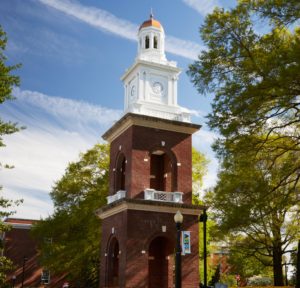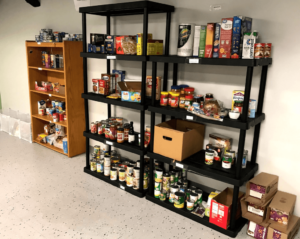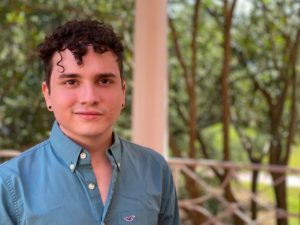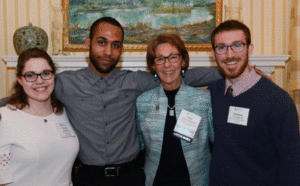Scholarship helps UMW senior look forward to aspirational career.
During the past several months, a UMW senior has faced job loss, financial uncertainty, homelessness, and hopelessness. “In August, I thought I was going to have to live in my car,” says Dela. “Fortunately, someone at UMW helped me find a place on campus so I averted disaster that time.”
Due to an unstable family situation, Dela does not have the support of her parents – financial or otherwise. Since her early teenage years, Dela has been working hard and struggling to save money to fund her dream of receiving a college degree. At times, her goal seemed out of reach when savings from extra-curricular babysitting jobs was tapped to pay her family’s rent.
her early teenage years, Dela has been working hard and struggling to save money to fund her dream of receiving a college degree. At times, her goal seemed out of reach when savings from extra-curricular babysitting jobs was tapped to pay her family’s rent.
Overcoming these and other hurdles in high school, she was thrilled to be accepted at Mary Washington. It quickly became her home and her safe space. She received the Marjorie Jean Frost ’44 Scholarship to help with tuition. She found employment on campus, worked off-campus jobs, volunteered at Hope House through UMW’s Community Outreach and Resources (COAR) program, and still found time and energy to pursue two majors and two minors. She had a plan to earn enough money to pay for each semester through graduation in May 2021. Then, COVID-19 changed everything.
“In the spring and summer of 2020, my campus jobs and my off-campus jobs were either reduced or eliminated,” she says. “I could not go back home, and I had no safe place to live.” She eventually found a less-than-ideal place to live temporarily, but then fall move-in was delayed due to COVID and she faced a housing gap that could extend weeks or longer.
Fortunately, she was able to live on campus then and during the 2020/2021 winter break. Through all this, she remains grateful for the donor who provided her scholarship, and she is holding on to her career aspirations of becoming a child advocacy lawyer or a social worker.
“No child should have to endure the types of hardships or stresses I have experienced,” she says. “I had no control of my own childhood at all, but someday I hope to be able to redirect the future and help others like me.”

Gayle Mitchell, director of the Rappahannock Scholars Program at UMW, says Mary Washington students often face similar situations, many of which have been made worse by the pandemic.
“The University made alternative living arrangements for several students so they would be safe and have access to internet, food, and necessities,” says Gayle. “There is always need for financial aid and private scholarships – especially for first-generation students and those from low-income families. Now, we also are seeing need for food, shelter, and other incidentals.”
Director of Financial Aid Timothy Saulnier explains that the amount of financial aid a student receives is based on a calculation using parent and student information from a federal application form. “A parent’s refusal to help is not a factor in determining expected family contribution (EFC) or amount of need,” says Timothy. “This is where flexible emergency funding that is not based on defined need could provide essential support in special circumstances.”
For more information about funding a scholarship or helping with emergency student needs, visit fund.umw.edu or contact the Office of University Advancement at advance@umw.edu.
NOTE: The student profiled above requested her full name be withheld for privacy purposes.
Article written by Donna Harter, Executive Director of Advancement Initiatives

 After 36 years in the field of education, Patricia Boise Kemp ’69 retired from teaching AP computer science and calculus in Prince William County Schools. Today, she is applying those math skills to philanthropy by serving on the UMW Foundation Board of Directors and by maximizing her IRA rollover to support UMW students and programs.
After 36 years in the field of education, Patricia Boise Kemp ’69 retired from teaching AP computer science and calculus in Prince William County Schools. Today, she is applying those math skills to philanthropy by serving on the UMW Foundation Board of Directors and by maximizing her IRA rollover to support UMW students and programs.